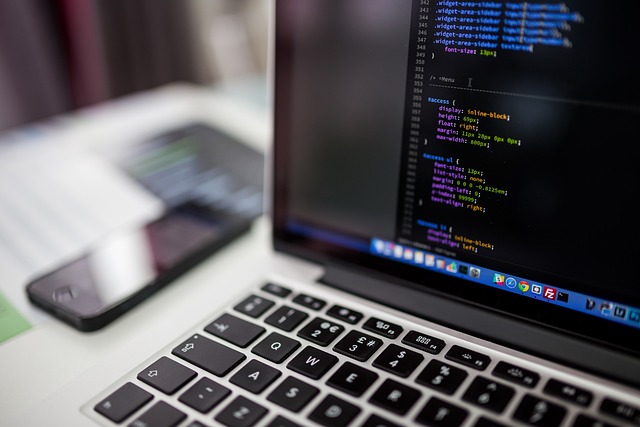Many users experience slow computer performance, prompting searches for slow computer repair services. Understanding common issues like excessive startup programs, frequent crashes, and slow internet speeds is key. These problems often stem from outdated hardware, malware, fragmented disks, or temporary files. Simple yet effective strategies include regular maintenance (malware scans, removing unnecessary files), hardware optimization (upgrading RAM, hard drives), and basic troubleshooting (clearing disk space, closing unused programs). These techniques empower homeowners to enhance their computer's performance at minimal cost.
Are you tired of a sluggish computer that seems to take forever? Understanding and fixing slow computer issues is easier than you think. In this article, we’ll guide you through the process by exploring common causes and symptoms of slow performance in Austin. Discover expert techniques to speed up your machine and learn simple steps to optimize your computer’s performance at home. Get ready to transform your tech experience!
- Understanding Slow Computer Issues: Common Causes and Symptoms
- The Secret to Efficient Slow Computer Repair: Austin Experts Share Their Techniques
- Simple Steps for Optimizing Your Computer's Performance at Home
Understanding Slow Computer Issues: Common Causes and Symptoms

Many computer users experience slow performance at some point, often leading them to search for reliable slow computer repair services. Understanding common issues and their causes is a crucial first step in troubleshooting. One of the most frequent problems is excessive startup programs, which can significantly slow down boot times and overall system responsiveness. These programs often run in the background, consuming valuable resources without your knowledge.
Other typical symptoms include frequent freezing or crashing, slow internet browsing speeds, prolonged time taken to open applications, and a general lag when multitasking. Such issues may be due to outdated hardware, malware infections, fragmented disks, or excessive temporary files. Identifying these problems is essential in seeking effective slow computer repair solutions.
The Secret to Efficient Slow Computer Repair: Austin Experts Share Their Techniques

The process of fixing a slow computer is often perceived as complex and daunting, but Austin’s expert technicians have uncovered some simple yet effective strategies to transform your sluggish machine into a swift performer. One of the key secrets is regular maintenance. Just like a well-oiled machine, computers require periodic checks and servicing. Experts recommend scheduling routine scans for malware and viruses, removing unnecessary files, and updating software regularly. This proactive approach not only speeds up performance but also prevents potential issues from becoming major headaches.
Additionally, these Austin computer repair experts emphasize the importance of optimizing hardware. Upgrading outdated components like RAM or hard drives can significantly boost processing speed. They suggest keeping an eye on storage space and closing unused programs to free up valuable resources. By implementing these simple techniques, homeowners can enjoy a much faster and more responsive computer without breaking the bank.
Simple Steps for Optimizing Your Computer's Performance at Home

Many homeowners face the issue of a slow computer, often overlooking simple troubleshooting steps that can significantly improve performance. Here’s how you can optimize your machine’s speed at no extra cost:
1. Clear Up Disk Space: A cluttered hard drive can lead to sluggish performance. Delete unnecessary files, including old documents, temporary data, and unused applications. Regularly emptying the recycling bin and using built-in disk cleanup tools can free up valuable space, allowing your computer to operate faster.
2. Close Unnecessary Programs: Running multiple programs simultaneously can burden your system resources. Close any apps or browser tabs you’re not actively using. This simple act reduces the number of background processes running, freeing up RAM and CPU power for tasks that need them most.
In conclusion, addressing a slow computer is no longer a daunting task. By understanding common issues and employing expert techniques, such as those shared by Austin’s top professionals, you can significantly enhance your computer’s performance. The simple steps outlined in this article serve as practical guides to optimize your system at home. Remember that prompt action on potential problems can prevent major repairs later on, ensuring a smoother digital experience.
